You can find online and video resources on this page. We particularly recommend the documentaries available at Wells Library and the documents available through University of Texas at Austin’s Prague Spring Archive.
Online Resources
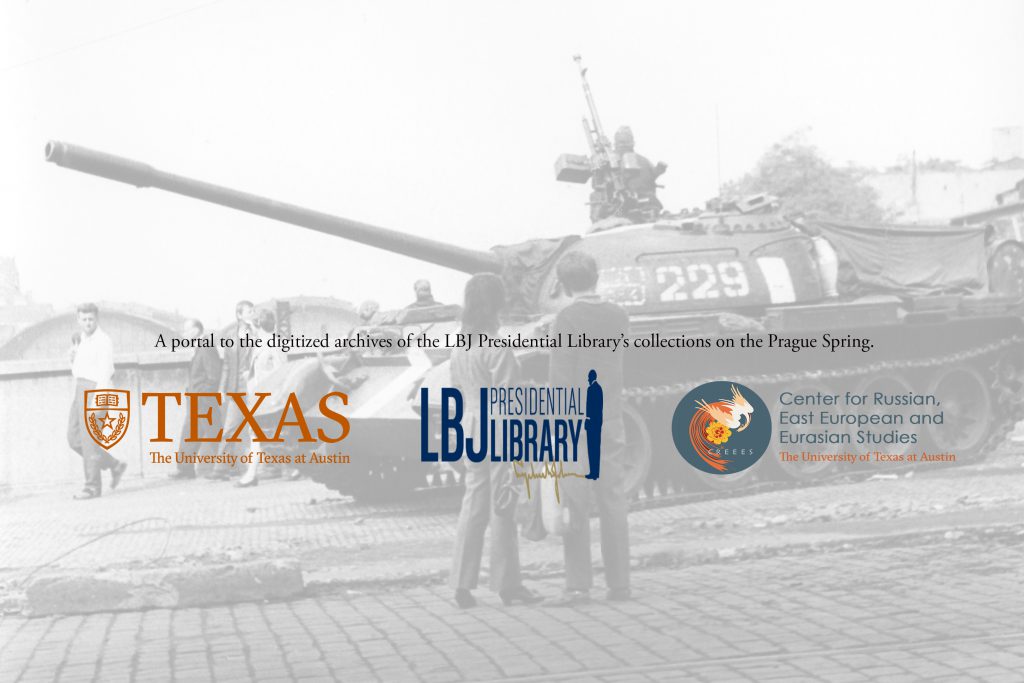
The Prague Spring Archive from UT Austin Libraries, LBJ Presidential Library and Center for Russian, East European, and Eurasian Studies.
Find it in UT Austin Libraries
From UT Austin Libraries:
“An online portal for the Prague Spring archival materials within Texas ScholarWorks and the LBJ Presidential Library.”

A Look Back … The Prague Spring & the Soviet Invasion of Czechoslovakia from CIA’s 2008 Featured Story Archive. Find it in CIA News & Information |
This page is about the Central Intelligence Agency’s role in the Prague Spring. The web page features a short article on the CIA’s actions and offers suggestions for further reading about the Prague Spring through the eyes of the CIA from the CIA archives.

Soviet Invasion of Czechoslovakia from Wilson Center Digital Archive.
Find it in the Wilson Center
From the Wilson Center:
“Documents on the 1968 Prague Spring in Czechoslovakia and the Soviet invasion in response.[…C]omprised of reports, notes, and memorandums, the growing unrest in Czechoslovakia is discussed, along with border control problems, and the Warsaw Pact’s eventual military intervention.”
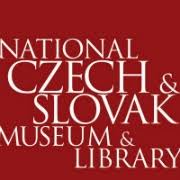
| Oral Histories from Czechoslovak immigrants from the National Czech and Slovak Museum & Library. Find it at the National Czech and Solvak Museum & Library |
From the National Czech and Slovak Museum & Library:
“On the project’s website, you can read biographies of Czechs and Slovaks who began a new life in the United States, watch video clips from their interviews, and view photos and other archival materials they shared with us.”
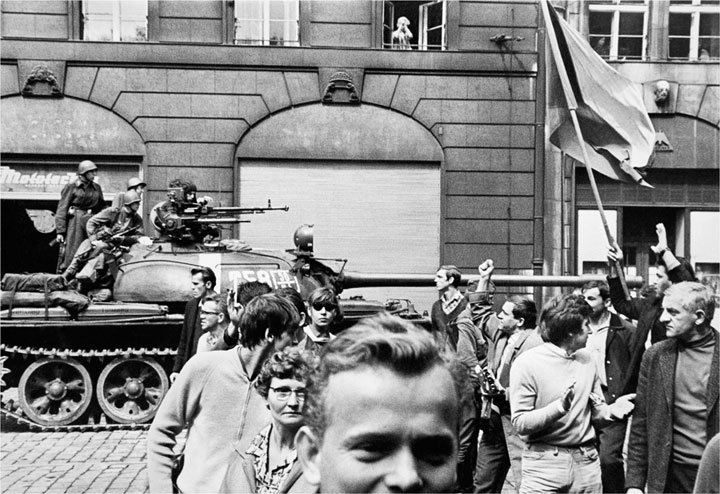
| Prague 1968 from the Photography of Paul Goldsmith. Find it in The Photography of Paul Goldsmith |
From the National Czech and Slovak Museum & Library:
“Dramatic photographs of the Warsaw Pact invasion by a then 19-year-old college student from the United States. Goldsmith, fleeing the Soviet soldiers who were confiscating and destroying cameras, captured the end of the Prague Spring.”
Video Resources
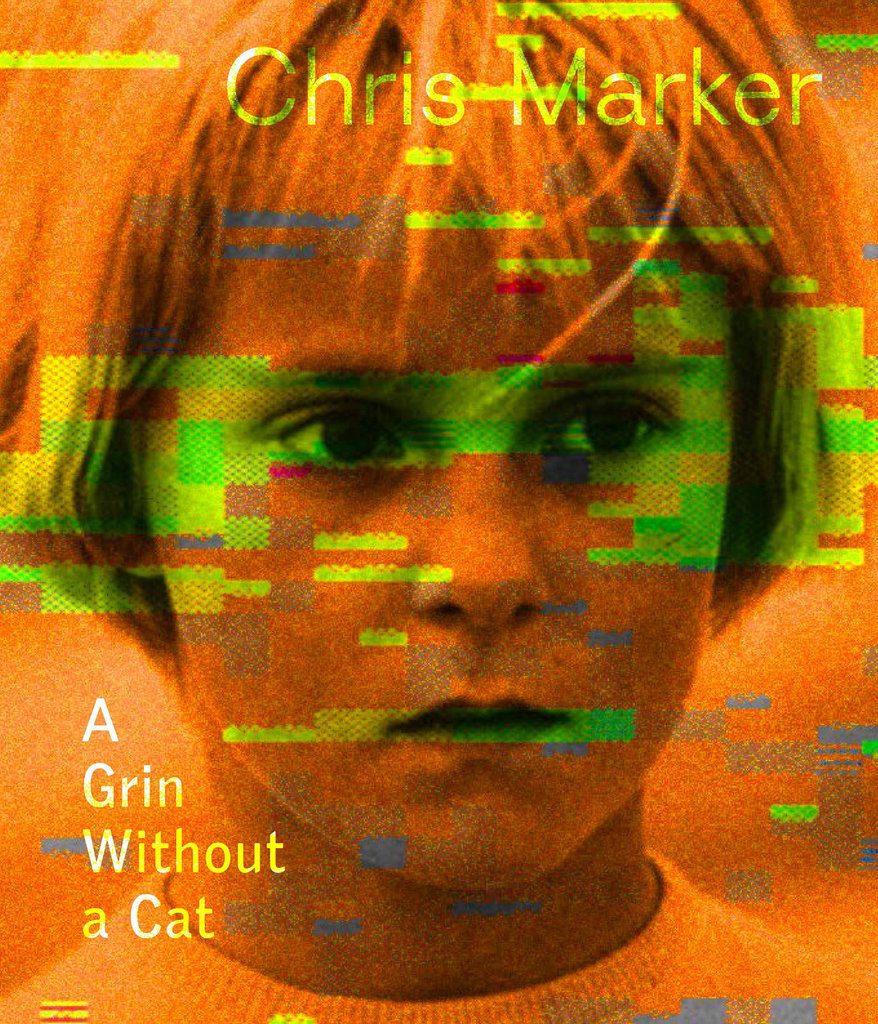
A Grin Without a Cat. ISKRA, INA, Dovidis. Directed by Chris Marker. New York : Icarus Films Home Video, c2008. 1 videodisc (180 min.)
Find it in IUCAT
From IUCAT:
“An overview of the worldwide political upheavals during the Sixties and Seventies. Interweaves footage from the Vietnam War and the antiwar protests in the U.S., May ’68 in Paris, the Soviet invasion of Czechoslovakia, Salvador Allende and the coup in Chile, Che Guevara and Regis Debray in Bolivia, the Shah of Iran, Fidel Castro, et alia.”
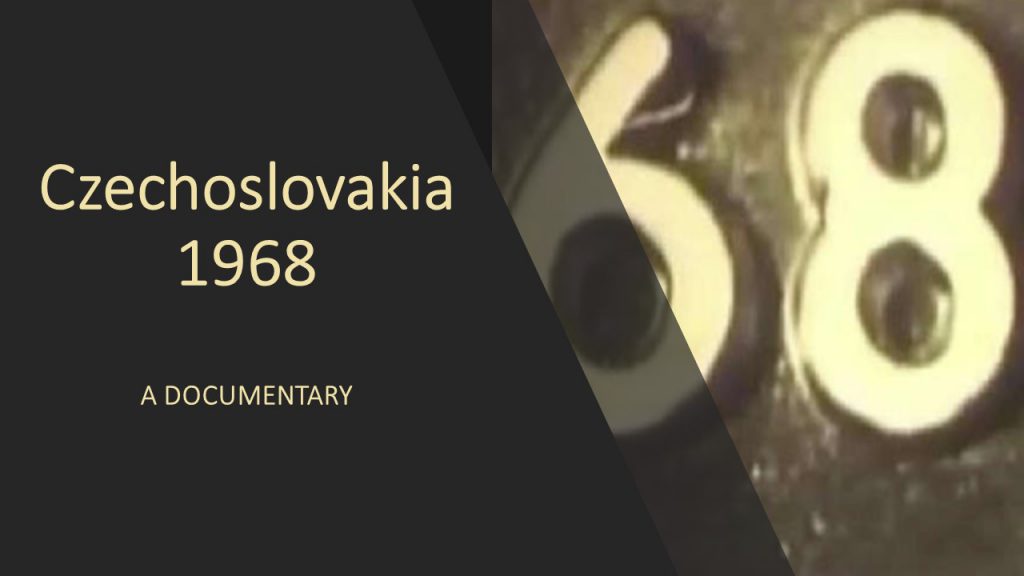
Czechoslovakia 1968. Robert M. Fresco & Denis Sanders. 1969. 1 streaming file (15 min.)
Watch it on YouTube
From TresBohemes:
“Czechoslovakia 1968 received the award for the Best Documentary Short Subject of 1969 at the 42nd Annual Ceremony of the Academy of Motion Picture Arts and Sciences, Hollywood. It is a short documentary film about 50 years of history of Czechoslovakia, composed entirely of sepia toned archival footage. It was produced in 1969 and it focuses primarily on ‘Prague Spring,’ also known as the Warsaw Pact Forces’ invasion of Czechoslovakia.”
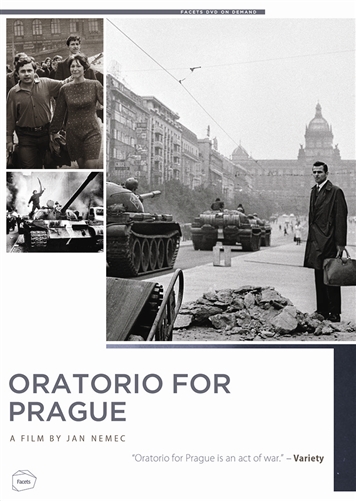
Oratorio for Prague. Gulfilms. Directed by Jan Nemec ; produced by Claude Berri, Jean-Pierre Rassam. Chicago, Ill. : Facets Video, c1992. 1 videocassette ( ca. 30 min.)
Find it in IUCAT
From IUCAT:
“A film which began as a documentary about the liberalization of Czechoslovakia became a record of the entry of Soviet tanks into Prague in 1968 and the suppression of Czechoslovakia during the Prague Spring. This is the only filmed record of the Soviet invasion and it is proof that the Soviet Army had not been ‘invited’ in as they claimed. Includes scenes of the Prague Spring before the Soviet invasion.”
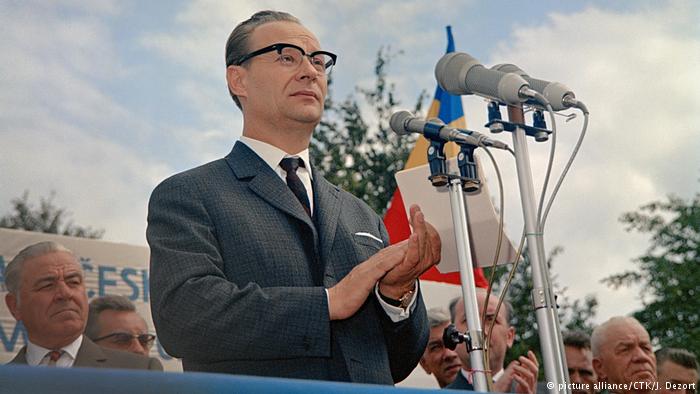
Prague Spring. Zebra Film Berlin for Deutsche Welle. Directed by Gina Kovács and Christian Vinkeloe. New York, N.Y. : Infobase, [2013], c1998. 1 streaming video file (29 min.)
Find it in IUCAT
From IUCAT:
“In 1968 Alexander Dubcek’s attempt to liberalize Communist rule in Czechoslovakia and to create ‘socialism with a human face’ resulted in Soviet tanks in the streets of Prague. This program presents both the political detente behind Brezhnev’s position and the dissent that was silenced within the Warsaw Pact alliance. In addition to extensive archival footage, contemporary interviews with leading Dubcek opponent Vasil Bilak; Jiri Pelikan, Czech radio director-general; Eduard Goldstuker of the Czech Writers’ Union; Izvestia correspondent Vladlen Krivosheyev; Grigori Yashkin, retired Soviet Army general; and Werner Mantzsch, GDR Army political officer, provide insights that reveal the dissent within the Eastern Bloc countries in the 1960s.”